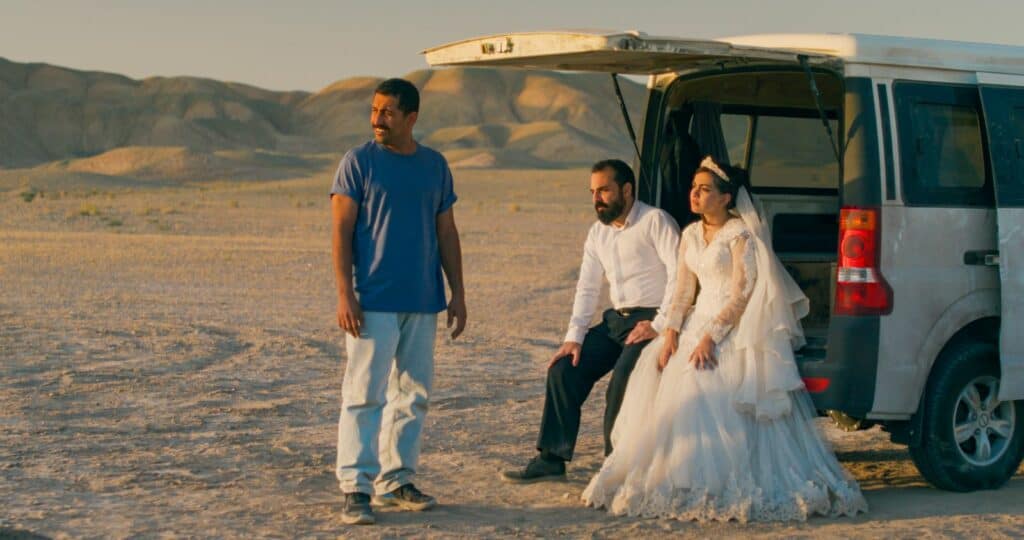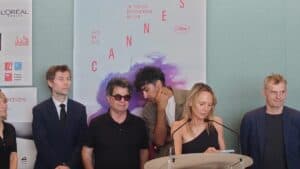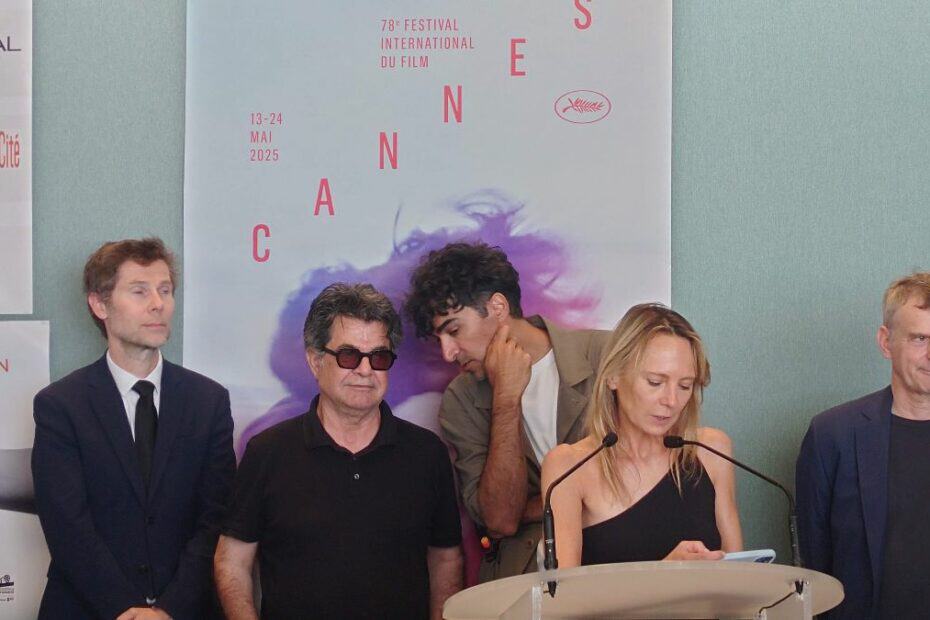It Was Just an Accident (Yek tasadef sadeh) is the latest film by Jafar Panahi. It had its premiere during the Cannes Film Festival. Like many of his colleagues, the director has had a hard time with the Iranian authorities and spent a significant time in jail. His last film, No Bears (Khers nist), premiered in the 2022 Venice competition. Many Iranian directors are shaped by the dire political situation in the country. Another example is Mohammad Rasoulof, who managed to leave Iran last year to present The Seed of the Sacred Fig at Cannes. In Panahi’s case, the outcome was two prison sentences: the first in 2010, followed by a second in 2022.
The story begins when Eghbal (Ebrahim Azizi), driving at night with his pregnant wife and daughter, accidentally hits and kills a dog, damaging his car’s engine. Stranded, he seeks help at a garage owned by Vahid (Vahid Mobasseri), a former political prisoner. Vahid thinks he recognises the squeak of Eghbal’s prosthetic leg as that of “Peg Leg,” the intelligence officer who tortured him in prison. He proceeds to kidnap him, and his initial plan is to bury him in the desert. Since Vahid was blindfolded in prison, he brings some other victims, including Shiva (Mariam Afshari), and newlyweds Goli (Hadis Pakbaten) and Ali (Majid Panahi). The group is rounded out by bookseller Salar and hotheaded Hamid (Mohamad Ali Elyasmehr).

The set-up is relatively straightforward, and the dilemmas involved are similar to those in Polanski’s Death and the Maiden (1994). Are they 100% sure they have the right man, and if so, will they manage to kill him? Then, there is the human and moral aspect of revenge. While Polanski’s film is set in an unnamed fictional country, the setting is blatantly evident in Panahi’s film. The director didn’t bother asking the authorities for permission since he knew he wouldn’t get it. Just like in Rasolouf’s film, women are depicted without their heads covered. According to the director, something that’s becoming more common in public. However, It Was Just an Accident is a stronger and tighter film.
To begin with, it is more than one hour shorter than The Seed of the Sacred Fig, but there are more substantial differences than that. Panahi has said that the second prison experience left an even deeper mark. When he got out, he felt compelled to make a film for the people he had met behind bars. I do not wish to dwell on the differences between two colleagues who suffered through similar experiences and organised lectures together in prison. Still, there was a striking difference in the way the two directors entered Lumière for their respective premieres. Similarly, I would describe Panahi as a more humble and honest director. Still, the Palme d’Or win was a major surprise.
It Was Just an Accident, or was it political?
When Juliette Binoche was asked during the jury press conference if the decision was artistic or political, her answer was as elusive as if given by a politician. As I’ve already stated, there were far more worthy winners of the Palme than this film, and the decision was obviously political. Earlier during the day, Panahi won the Citizenship Award, which made more sense. There is nothing inherently wrong with the film, but we’ve seen most of it before. Halfway through the film, I was thinking about the most obvious ending, which is basically what happened. Iran, currently, has one of the most egregious regimes on the planet and believing that they can be defeated with humanity alone seems naive.
From a cinematic perspective, it is far from the most interesting film in the competition. There is a much more interesting leg in Filho’s The Secret Agent than Eghbal’s squeaky limb. On the other hand, there has not been a single worthy Palme d’Or since The Tree of Life in 2011, and this is the least objectionable post-pandemic Palme. The English title is terrible. In French, it is called Un Simple Accident, which sounds much better. It is a good film that deserves to be seen, but it shouldn’t be confused with a great one.
With this win, Jafar Panahi has won the top prize of the three major European festivals. The Circle (Dayereh 2000) remains his best film, and the one most deserving of a Golden honour.
It Was Just an Accident

Director: Jafar Panahi
Date Created: 2025-08-12 21:02
3
Pros
- Well made
Cons
- Slightly predictable

